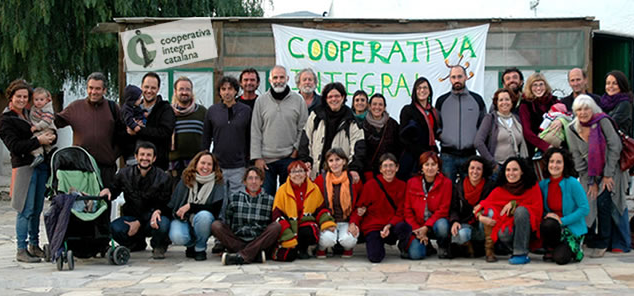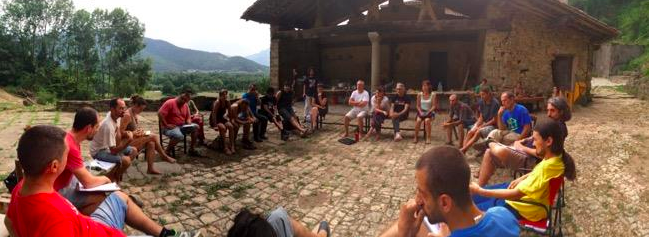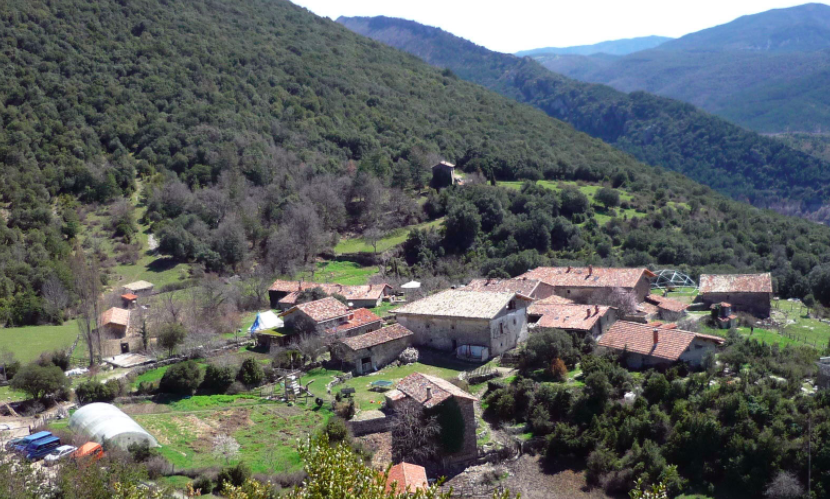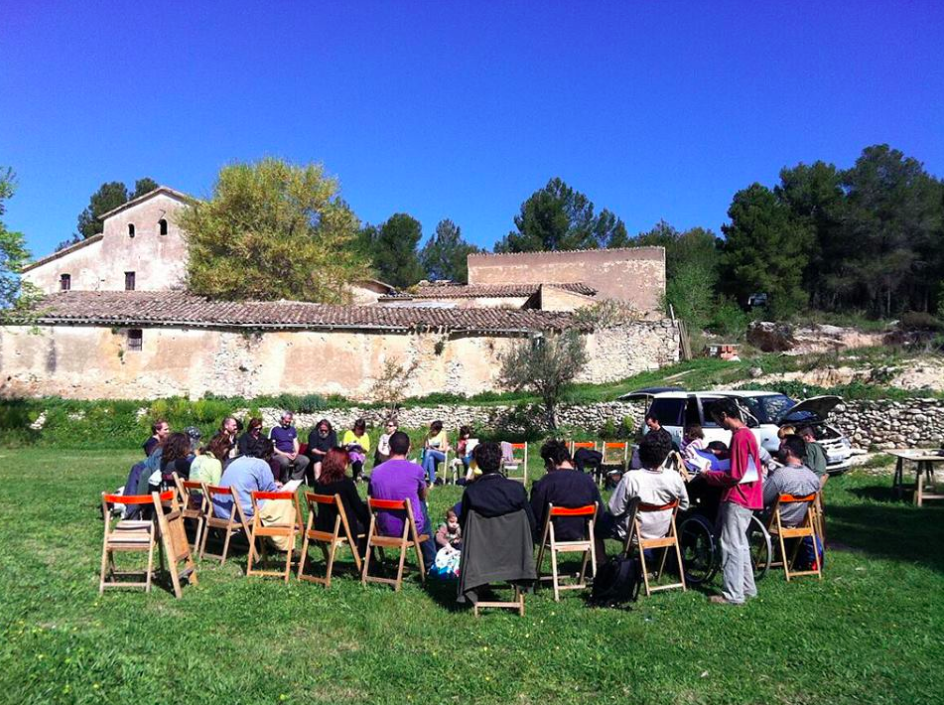For the second in our series of Project Partner Spotlights we speak with Daniel Negro from Cooperativa Integral Catalana (CIC), a collective which launched in Catalunya in 2010, with the aim to build from the bottom-up a self-managed society beyond capitalism. Using the tools of direct democracy, cooperativism, self-organisation and self-management, the CIC now has about 300 individual or collective productive projects, some 30 local centers (ecoxarxes), 15 community life projects and about 1,700 individual and collective partners, with close to 5,000 people involved.
Puedes consultar la version orginal de la entrevista aqui.


Tell us a little bit about Cooperativa Integral Catalana. What does the organisation do and what types of groups do you work with?
Based in Catalunya, the CIC tries to encourage more people to join in the process of social transformation. We do this through 2 key ways: the first is through the growth of ‘Ecoredes’ – spaces of exchange and bioregional organisation that promote the development of self-management with social currency as the basis of economic exchanges. The second is through disobedience dynamics – through the use of legal figures to cover self-management processes. The latter is our main source of income, and allows us to finance a series of functions (welcoming process, communication channels, legal advice…), which attempt to facilitate the creation of a cooperative public system, a social market where basic needs are available to all.
We are a meeting point for many different social projects. We create tools that facilitate interactions between people including social currency software, mailing lists and websites. We provide information, advice and try to answer questions on site around specific problems of TS projects, including financing and legality.
We place an emphasis on experimentation: projects of cripto-currency, health centres or education initiatives, some of which haven’t lasted but we have learnt many things from them. Currently we are immersed in a process of decentralization to deepen the organisation’s internal democracy and support a closer, more horizontal decision making process. We are internationally renowned with Barcelona recognised as an epicenter of cooperativism, and at a state level the process we follow is also well known, and replica cooperatives have been made, with many collectives referencing us. In Catalonia we are well know within the field of social currencies and many related projects.

What is your role in CIC? What are the main challenges?
My role is to make it easier for more people to know and be a part of the CIC in an active way with the idea of making it more horizontal and transparent. My aspiration is to help people learn to do it. We are now in the process of developing a database of people who form the project so that we have a clearer idea of seeing what skills we can offer, and also see what gaps exist, our potentialities. This will also be a way to facilitate the flow of information amongst all project members. What I most appreciate about working for the CIC is the different people and projects that I get to know.
A big challenge is the return of mutual support and the creation of more community economies. The CIC is one of many projects and contributes its bit. Social currency would be the main tool that we can contribute with.

How do you stay inspired in difficult times? What’s your own personal way of keeping a check on burn-out?
There are always ups and downs in activism which provide opportunities for great learning. I support myself in the company of friendships with a lot of people working on similar projects, and practicing martial arts (combining action and relaxation) to survive. I also always look for “elements of fresh air”: new people and projects. I’m interested in learning new ways to live together.
Col·lectiu Eco-actiu, the training collective behind the Ulex Project, delivered a training on Sustainable Activism in Barcelona for CIC members. How did that impact on the people and groups you work with?
I really liked your approach. I still keep the notes. It provided us with interesting conceptual tools, but there´s still a need for continuity beyond that training. Although I believe that a person can make changes based on tools, CIC is a complex organism that will require ongoing work to thrive. The training made me want to learn other ways of doing things.
Thanks to Daniel and all at Cooperativa Integral Catalana.
To learn more about Economic Disobedience and CIC’s Territorial Network visit the Cooperativa Integral Catalana website.